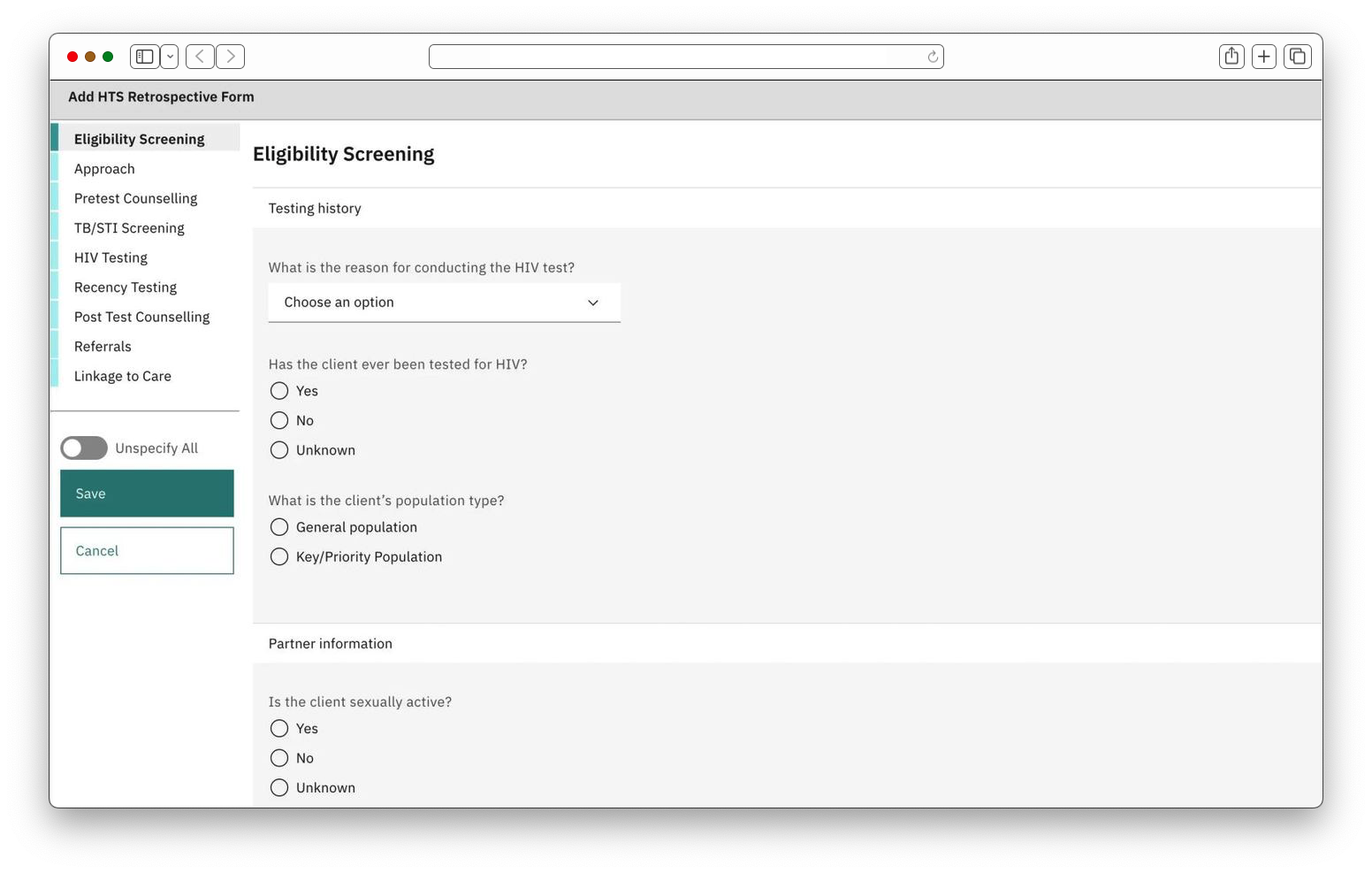The REACT Form Engine (RFE) enables users to create and display data collection forms (i.e. patient registration forms and clinical assessment forms) within the OpenMRS 3 environment. Initially conceptualized by the UCSF Health Informatics Hub and its partners Makerere University and the University of Nairobi, it was designed to match the beautiful and user-friendly new design of OpenMRS 3 while providing implementers an easy way to design powerful forms for capture and display of clinical data.
The new forms engine is designed to match the capabilities of the previous version of the forms engine, the Angular Form Engine (AFE, also known as the AMPATH Form Engine) as well as to be fully compliant with the current technology stack of OpenMRS 3, which is REACT and Carbon. To make the transition as easy as possible, the RFE uses the same forms engine as the previous forms engine, so that implementers do not have to redesign their forms.
Some of the key features offered by the RFE include sections within forms, skip patterns, input validation, look up of previous values, special calculation functions such as BMI, sub forms, workflows and more. The RFE is designed to serve both retrospective data entry as well as point-of-case scenarios. The RFE also comes with a forms tester, to preview forms before they are released, and to test the forms against the backend to ensure all concepts are properly defined.
Hacking our way together in the community
In April 2024, the development of the RFE reached an important milestone during a hackathon organized by OpenMRS. This event created an opportunity to leverage the diverse experiences of various teams and work towards a common goal which is to make the RFE the default Form Engine for the OpenMRS Reference Application. The hackathon was a good showcase of what can be achieved when everyone in the community works together. The RFE is now in Dev3 and is fast-tracking its way into the next release of the OpenMRS Reference Application.
The forms engine team would like to extend a heartfelt thank you to everyone who has contributed to this project — including OpenMRS, AMPATH, Makerere University (METS), University of Nairobi, PIH, Mekom, Madiro and DIGI — as well as the funder of this project, the U.S. Centers for Disease Control and Prevention (CDC).

